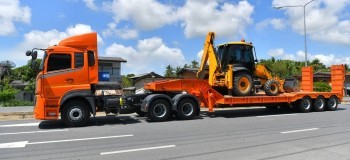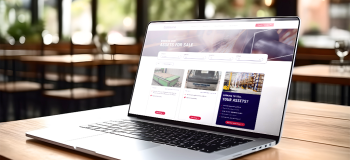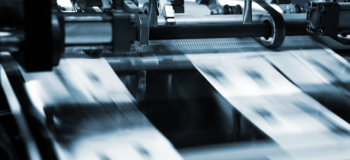30/07/2025
Insights
Buying used machinery at auction can be a smart move for businesses of all sizes - offering significant savings, fast access to equipment and a wide variety of assets to choose from. But whether you’re a first-time buyer or a regular bidder, there’s one critical area that’s easy to overlook: ensuring the machinery you’re buying is free from outstanding finance or ownership claims.
Failing to carry out the right checks could lead to costly consequences, including the risk of repossession if the previous owner still owes money on the asset. In this article, Auction News outlines what to look for and how to buy with confidence.
What Is Outstanding Finance?
Outstanding finance means the equipment still has money owed against it - typically through a hire purchase or lease agreement. If that finance hasn’t been settled, the lender may retain legal ownership, even if the machinery has since changed hands.
This situation is not dissimilar to buying a car that’s still under finance: the lender may have the legal right to reclaim the asset, leaving the buyer out of pocket and without the equipment.
Essential Checks Before You Buy
To avoid buying machinery with unresolved financial ties, carry out these key steps:
Request Documentation
Ask to see proof of ownership, service records and confirmation that any finance has been cleared. Reputable auctioneers will usually have this available or can provide it on request.
Use a Finance Checking Tool
For vehicles or other registered assets, services like HPI Check or Experian Asset Check can help identify any active finance agreements. Use serial numbers or registration details to verify the asset’s status.
Review the Auction Terms Carefully
Always read the terms and conditions of the auction sale. These should make clear whether:
- The item is being sold “as seen”
- The auctioneer guarantees clear title
- The sale can be voided if finance or ownership issues later arise
Knowing what protection is (or isn’t) offered gives you a clearer picture of the risks involved.
Get a Sales Agreement
After a successful bid, ensure you receive a sales agreement that includes:
- A full description of the asset (make, model, serial number)
- A clear statement that the item is sold free from finance or legal claims
- Seller and buyer details
- Signatures from both parties
This document helps establish proof of ownership and can offer protection in any future dispute.
Take Extra Care with High-Value or Private Sales
If you’re buying high-value machinery or transacting outside of an auction setting, take additional precautions:
- Seek advice from a solicitor familiar with commercial asset purchases
- Consider title insurance, which may offer cover if finance or legal claims surface post-sale
- Use escrow services to protect funds until the sale is fully verified
Why Trusted Auctioneers Matter
Choosing a well-established auctioneer can significantly reduce your risk. Experienced auction houses often carry out thorough checks on ownership and finance before listing items, giving buyers additional peace of mind.
Final Thoughts
Outstanding finance and unclear ownership can turn a bargain into a costly mistake. But with the right checks in place - and by understanding the auction process - it’s entirely possible to avoid these risks and buy with confidence.
Taking a few simple steps before you bid could save your business time, money and future headaches.
Get in touch with the BTG Eddisons Asset Sales team
Please contact us for more details and information










